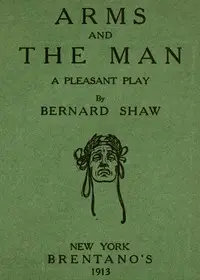"Back to Methuselah: A Metabiological Pentateuch" by Bernard Shaw is a thought-provoking exploration of evolution, long life, and the flaws within human societies. Stepping away from traditional storytelling, Shaw uses essays and conversations to consider Darwinism and what it means for humanity's future. The work proposes how we might evolve by understanding and embracing creative evolution. The narrative begins with Shaw reflecting on his younger years and how people viewed Darwinism and well-known scientists. He compares common theories to other ideas about purposeful evolution and adaptation, questioning simple views of Neo-Darwinists and highlighting the difficulties of inheritance and evolution. Posing connections between human intelligence, education, and societal growth, humanity's evolutionary path is still in the making, and change is always possible.

Back to Methuselah: A Metabiological Pentateuch
By Bernard Shaw
Witness humanity's destiny unfold as radical ideas about evolution and immortality clash against the limits of mortal life.
Genres
Released
2004-08-02
Formats
epub3 (images)
mobi (images)
epub (images)
mobi
epub
txt
Free Download
Summary
About the AuthorGeorge Bernard Shaw, known at his insistence as Bernard Shaw, was an Irish playwright, critic, polemicist and political activist. His influence on Western theatre, culture and politics extended from the 1880s to his death and beyond. He wrote more than sixty plays, including major works such as Man and Superman (1902), Pygmalion (1913) and Saint Joan (1923). With a range incorporating both contemporary satire and historical allegory, Shaw became the leading dramatist of his generation, and in 1925 was awarded the Nobel Prize in Literature.
George Bernard Shaw, known at his insistence as Bernard Shaw, was an Irish playwright, critic, polemicist and political activist. His influence on Western theatre, culture and politics extended from the 1880s to his death and beyond. He wrote more than sixty plays, including major works such as Man and Superman (1902), Pygmalion (1913) and Saint Joan (1923). With a range incorporating both contemporary satire and historical allegory, Shaw became the leading dramatist of his generation, and in 1925 was awarded the Nobel Prize in Literature.
Total Reviews
10.0k
Total reviews from Goodreads may change













